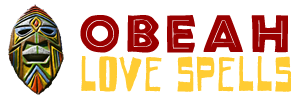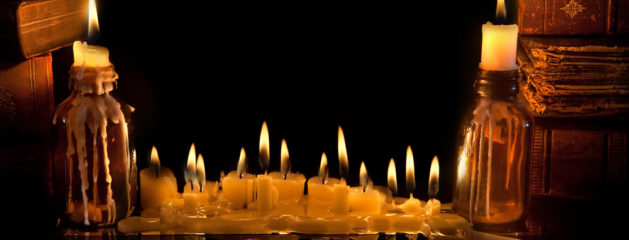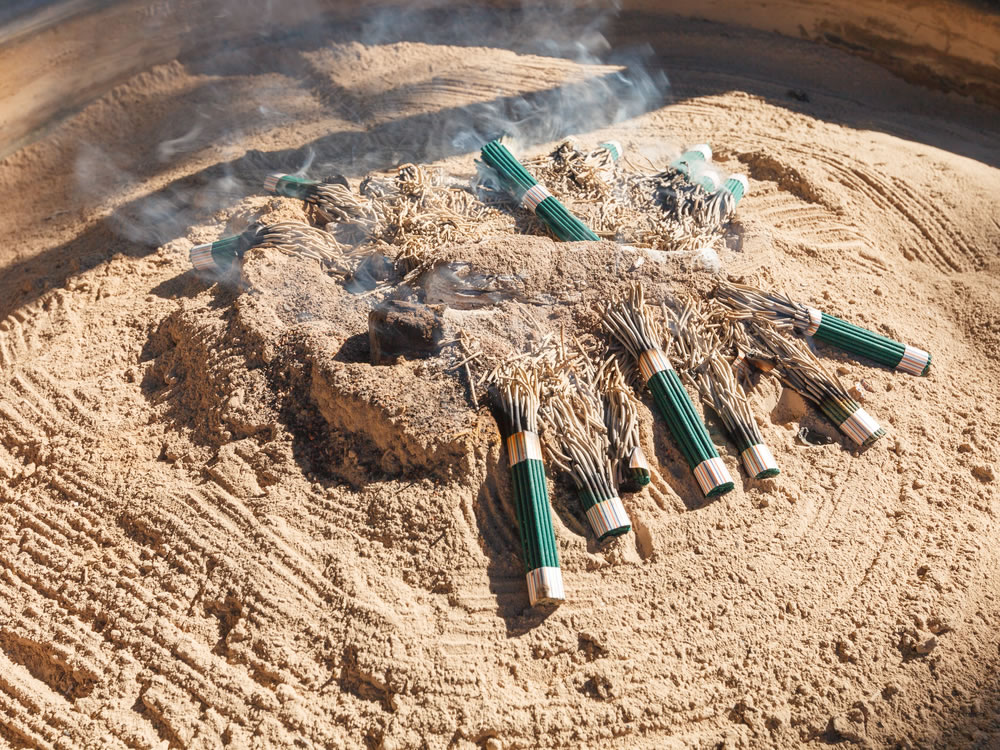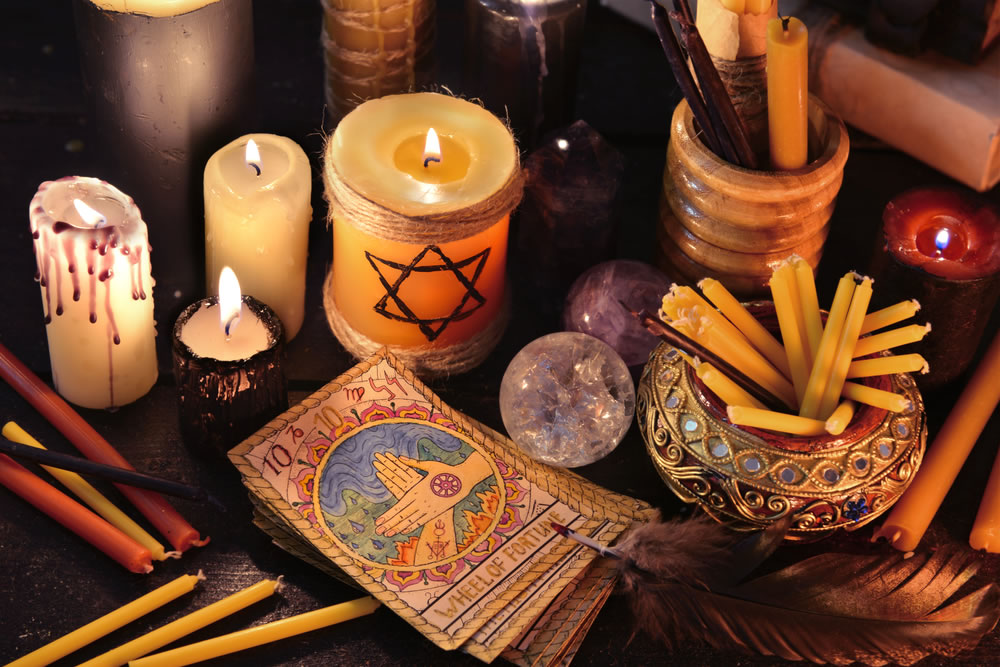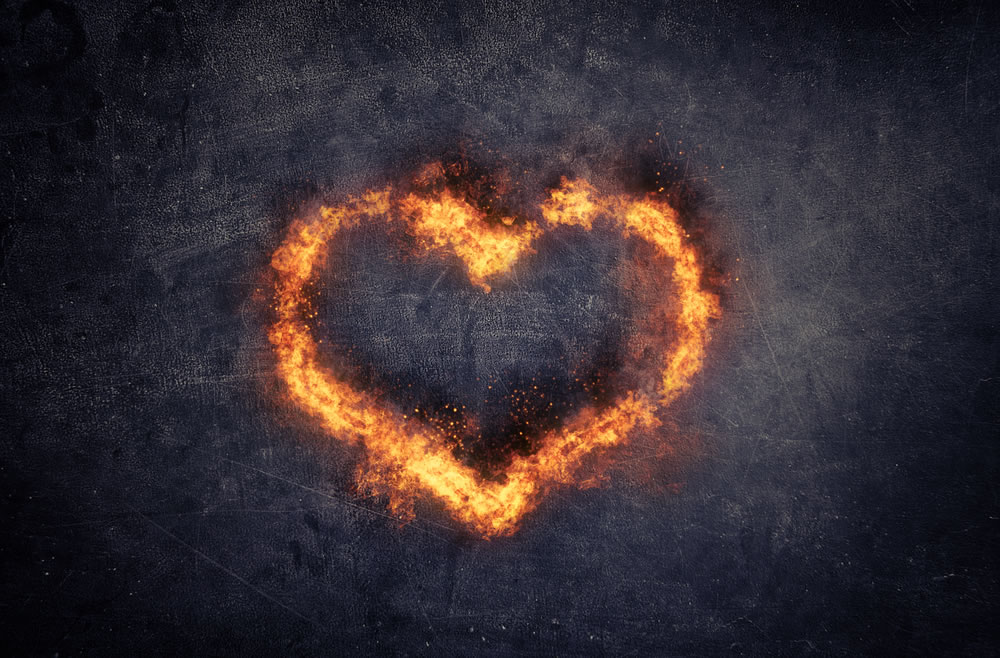As noted in earlier articles, Obeah is not a religion in the traditional sense as it does not have a specific doctrine of faith, formalized rituals, churches, mosques or temples. However it does have its practitioners, and similarities to the more classical religions.
Obeah by literal translation means “sorcery.” But it is much more than that. Obeah does involve the use of herbs and potions, charms and amulets, and in that regard resembles folk magic. Its practitioners can and do effect powerful cures using these techniques. But beyond that Obeah is a way of communicating with Deities and drawing power from metaphysical or spiritual realms though shamanistic rituals and offerings, and in that way it far more resembles a religion.
Today the term “Obeah” is most often applied to the remnants of what was no doubt a powerful and ancient sect of mystical beings, who now practice the craft and carry out the rituals on the Ivory Coast. These African Shaman or Obeah Men do have the ability to cure disease, bring love and good fortune, and even reanimate the dead. The first two have been well documented, of the third; many claim to have seen this occur. Even the scientific community has taken to exploring the practices of the Obeah Men and their brethren, the Voodoo Bokor Priests as they relate to supposed “Zombifcation”. The question of Zombies has drawn the attention of scholars in such diverse fields as ethnobiology, psychology, neurophysiology, anthropology, philosophy, even quantum physics. The quest for the so-called Zombie Drug was exquisitely detailed in Wade Davis’s breakthrough best seller The Serpent and the Rainbow, and research continues into the medical use of Tetradototoxin, or puffer fish venom, which Davis believed to be fundamental in creating the Zombies he encountered on the Island of Haiti.
So does the Obeah Man use powders and other shamanistic offerings to induce transcendental states, and help him tap into metaphysical forces? Yes. But this is no different than the American Indian Medicine Man preparing for a Vision Quest, a Yogi entering a meditative state, or the Catholic Priest who uses incense and candles during the rituals of prayer.
Most of the rites of Obeah require communication between the Obeah Man and the Deities. This is true whether they are to cast a spell with specific intent, such as a love spell, or healing spell to cure disease, or a divination to determine a person’s fate and take actions to alter it. To perform such communications it is necessary for the Obeah Man to enter into a trance like state. In this state he can “channel” the Deity and do its bidding. In a way it is a form of possession, and another reason why the Europeans and the Catholic Church have looked at the practice of Obeah as evil or demonic. But unlike demonic possession, in this state the Obeah Man has invited the Deity or spirit in, and there is nothing evil about it. In fact the Obeah Man is extremely adept at removing the more demonic forms of ghostly possession from an individual or a property.
Still traditional Obeah and the African religions were at best distasteful to the European Slavers, at worst outlawed. So in order to be practiced the rituals had to be done in secret, and throughout the Islands took on a veneer of Christianity, which is still present among the practice today.
Obeah and African-based religions gained significant favor in the West Indies because of their role in the various rebellions that helped to gain slaves their freedom. The Rastafarians who to this day struggle for freedom against oppression from all of “Babylon” have embraced Obeah. Today, in Jamaica Obeah survives in competition with the dominant Judeo-Christian religions, and is reemerging despite centuries of negative publicity by those who do not understand its practices.
